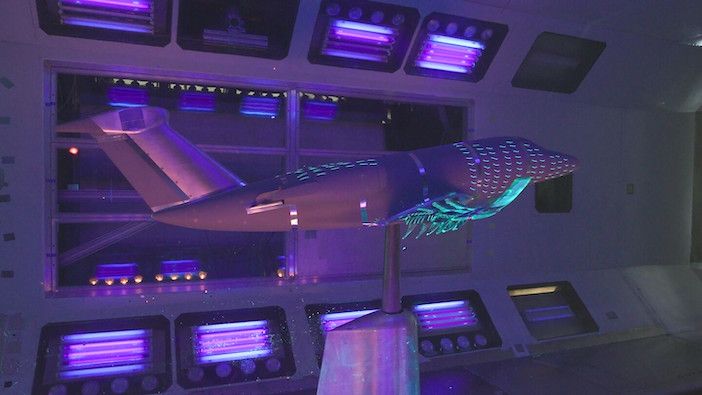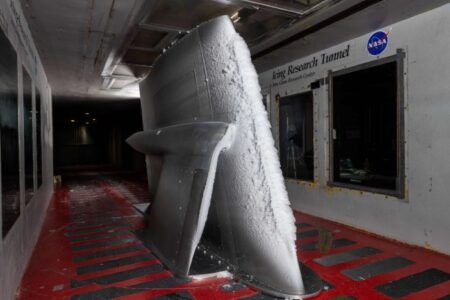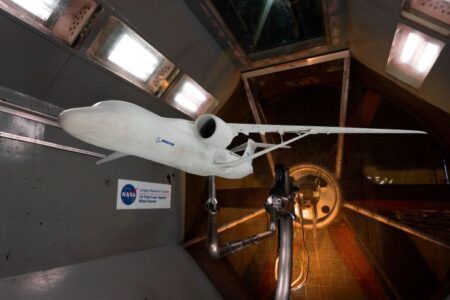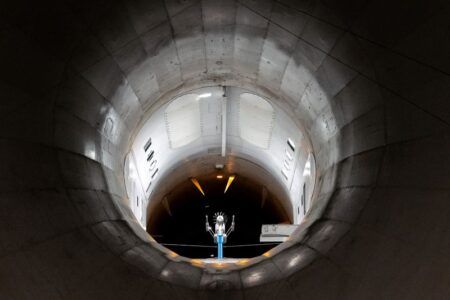Airbus has completed the wind-tunnel testing of its eXtra Performance Wing demonstrator, which features a new design inspired by bird wings to improve efficiency and reduce the CO₂ emissions from flight.
The eXtra Performance Wing project was launched last September and takes inspiration from nature to improve wing aerodynamics and performance that is intended to be compatible with any future aircraft configuration and propulsion system to reduce CO₂ emissions.
The tips of the eXtra Performance Wing use a semi-aeroelastic hinge to reduce drag and overall wing weight, while combating the effects of turbulence and wind gusts.
Oliver Family, head of eXtra Performance Wing UK for Airbus said, “The scaled demonstrator will integrate and fly breakthrough wing technologies using a remote-controlled Cessna Citation VII business jet platform in representative flight conditions.”
“The partly 3D-printed wind-tunnel model – expertly built by the aerodynamics team at Airbus’ low-speed, wind-tunnel facility in Bristol – is a scaled-down version of the Cessna jet, incorporating the lightweight, long-span design of the eXtra Performance Wing that will provide the emissions benefits we are striving for.”
Initially introduced at a smaller scale through another Airbus project, AlbatrossONE, which tested semi-aeroelastic hinged wings that – like the seabird – unlocked during flight when experiencing wind gusts or turbulence, the eXtra Performance Wing will also examine onboard technologies, like gust sensors, pop-up spoilers and multifunctional trailing edges, to enable the active control of the wing.
“Airbus’ state-of-the-art low-speed wind-tunnel is a fantastic way to validate our concepts before flight tests,” added Family. “Our computational aerodynamic analysis capability is world class, and the wind tunnel provides another valuable way to measure the performance and capabilities of the aircraft before flight testing. The technologies we have tested in the Filton wind tunnel – many inspired by biomimicry – will now be rapidly integrated for flight testing.”
The Airbus low-speed wind tunnel at Filton, near Bristol, replicates conditions similar to aircraft take-off and landing wind speeds but is also used by external organisations testing F1 cars, ship radar systems, Urban Air Mobility vehicles as well as more conventional aircraft.
The eXtra Performance Wing demonstrator is hosted within Airbus subsidiary Airbus UpNext, which was created to fast track the development of future technologies.





